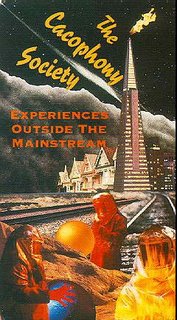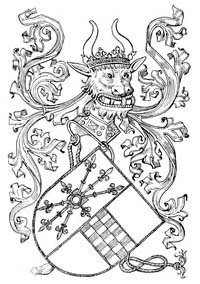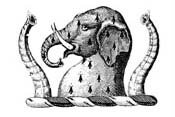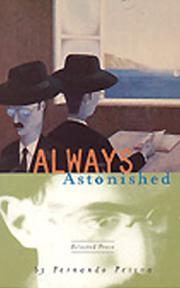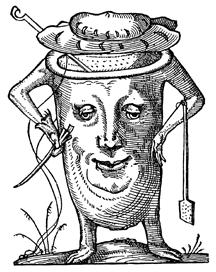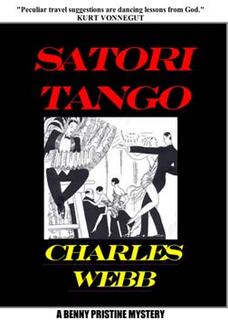Hieronymous P. Moondog, good friend and adivsor to Benny Pristine, and a character who figures prominently in SATORI TANGO, often refers to himself as a "Fortean Pataphysicist", having made a close study of the works of Alfred Jarry and Charles Fort and claiming that they were actually strange twins. The references below briefly summarize the approach of these two often overlooked pioneers in the history of science. More about H.P. Moondog's elaboration on their work and how it relates to SATORI TANGO later.
ALFRED JARRY
Alfred Jarry (September 8, 1873 – November 1, 1907) was a French writer, provocateur, pre-surrealist born in Laval, Mayenne, France, not far from the border of Brittany; he was of Breton descent on his mother's side.
Jarry invented PATAPHYSICS, which he defined as follows:
"Pataphysics, whose etymological spelling should be epi (meta) ta physika and actual orthography 'pataphysics, preceded by an apostrophe so as to avoid a simple pun (patte… physique), is the science of that which is superinduced upon metaphysics, where within or beyond the latter's limitations, extending as far beyond metaphysics as the latter extends beyond physics. Ex: an epiphenomenon being often accidental, pataphysics will be, above all, the science of the particular, despite the common opinion that the only science is that of the general."
According to Jarry, Pataphysics is the science of exceptions, and explains the universe beyond this one, or imagined to lie beyond this one, dealing entirely with accidental data comprising no "rule." Jarry's exact definition of pataphysics is: "The science of imaginary solutions, which symbolically attributes the properties of objects, described by their virtuality, to their lineaments."
Jarry proposes, for instance, that we should think of a vacuum as a "unit of non-density" rising outward, rather than of an object falling to the center. He observes that the shape of a watch is not any more round that it is rectangular (in profile). This is obviously typical 19th Century "objectivism" carried to an absurd extreme.
http://www.experiencefestival.com/a/PATAPHYSICS/id/193071
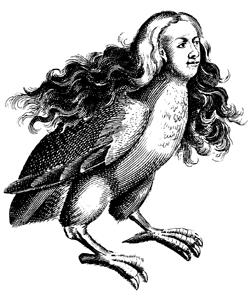
CHARLES FORT
Charles Hoy Fort (August 6, 1874 - May 3, 1932), writer and researcher into anomalous phenomena, was the son of an Albany, New York grocer of Dutch ancestry. According to some sources he was born on August 9.
Over and over again, Fort rams home a few basic points that are frequently forgotten in discussions of 'what is science': the boundaries between science and psuedo-science are 'fuzzy' not binary, these boundaries change over time, and there is a strong sociological influence on what is considered 'acceptable' or 'damned'. He also points out that whereas facts are objective, how facts are interpreted depends on who is doing the interpreting and in what context. These are viewpoints that would not be widely accepted until the early 21st century.
There are many phenomena in Fort's works which have now been partially or entirely "recuperated" by mainstream science, but many of Fort's ideas are on the very borderlines of science, or beyond, in the fields of paranormalism and the bizarre. Fort resolutely refused to abandon the territory between science and the absurd. Among Fort's contributions to the thought of the Twentieth Century was the invention of the word "teleportation" to denote the strange disappearances and appearances of anomalies, which tongue-in-cheek, he suggested may be connected. He also is perhaps the first person to explain strange human teleportations by the hypothesis of alien abduction.
Many consider it odd that Fort, a man so skeptical and so willing to question the pronouncements of the scientific mainstream, would be so eager to take old stories--for example, stories about rains of fish falling from the sky--at face value. Yet this is not the case: Fort remarked 'I offer the data. Suit yourself.' The theories and conclusions Fort presented allegedly came from the same sources as those of what Fort called 'the orthodox conventionality of Science': it did not matter to Fort whether his data and theories were accurate: his point was that alternative conclusions and world-views can be made from the data than those which Fort called 'orthodox,' and that the conventional explanations of Science are only one of a range of explanations, none more justified than another. In this respect, he was ahead of his time. In The Book of the Damned he showed the influence of societal values and what would now be called a 'paradigm' on what scientists consider to be 'true': this prefigured work by Thomas Kuhn years later. In a similar way the anarchic 'anything goes' approach to science of Paul Feyerabend is similar to Fort's.
Fort's great contribution is to the humour of science, for although many of the phenomena which science rejected in his day have since been proven to be objective phenomena, and although Fort was prescient in his collection and preservation of these data despite the scorn they received from his contemporaries, Fort was more of a parodist and a humorist than a scientist.
http://definition-info.com/Forteana.html
